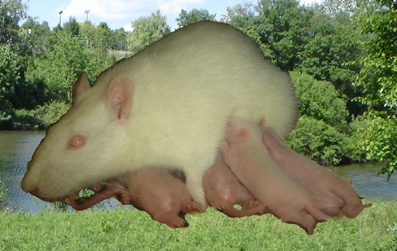ARO Members:
This year Congress is moving with uncharacteristic speed to write and pass its appropriations bills. Consideration of the bill that contains funding for the National Institutes of Health (NIH) is expected to begin on June 8 in the U.S. House of Representatives. As you may know, the President has recommended just a 0.7% increase in NIH funding for this year, well below the 3.5% rate of biomedical research inflation.
Visit CapWiz, an on-line legislative action center, provided to you by SfN to send a letter to your Representative urging for increased funding: http://capwiz.com/sfn/home/
Thank you in advance for your participation.
**********************************
Sample Letter:
Dear Representative:
As consideration on the FY 2006 Labor, Health and Human Services, and Education (L-HHS) Appropriations bill moves forward, I urge you to include a 6 percent increase in funding for the National Institutes of Health (NIH). As a constituent and member of the Association for Research in Otolaryngology, I am concerned with the state of biomedical research funding for this year.
As you may know, the President has recommended just a 0.7 percent increase in NIH funding for this year, well below the 3.5 percent rate of biomedical research inflation. If enacted, the President's recommendation will actually move research backwards. The recommendation would result in less funding and fewer grants awarded than in past years.
Reducing our investment in biomedical research has serious negative implications - not just for the health of the American people - but also for our economic strength as a nation, as Europe and Asia press forward with strong commitments to research.
The Association for Research in Otolaryngology represents more than 2,000 basic and clinical researchers from around the globe who are dedicated to improving the understanding of hearing and other communication disorders. The U.S. commitment to advancing scientific progress and health benefits is dependent upon federal health dollars.
An increase of 6 percent is needed to meet inflation and restore funds that have been transferred for other purposes in the current year. Please support at least a six percent increase in NIH funding in the FY06 L-HHS Appropriations bill.
Thank you for your consideration.
This letter was modified from a Society for Neuroscience request.

